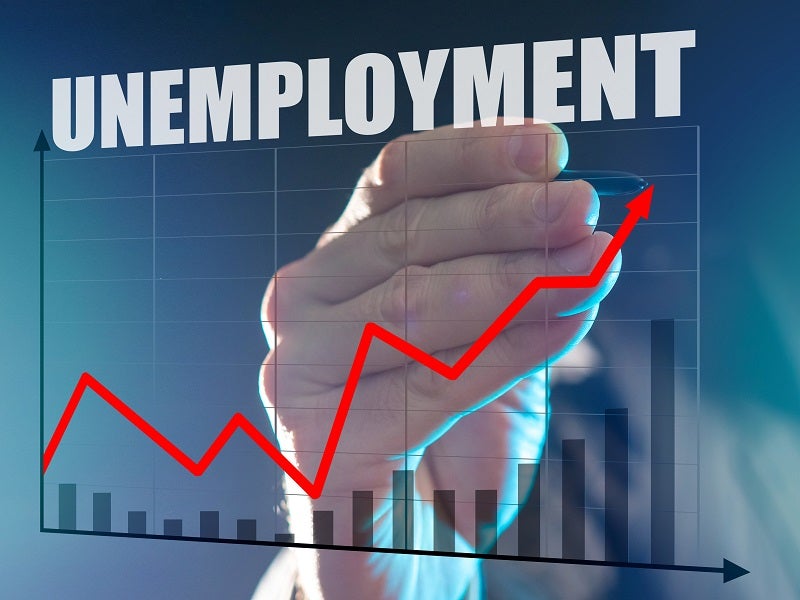The effects of Covid-19 pandemic have been multi-fold from shutting down businesses, causing widespread unemployment to a global healthcare crisis. Economies across the world were expected to recover in the second half of the year but the impact of the pandemic continues as it leads to permanent job losses and inflation. Macroeconomic influencers share their views on the Covid -19 impact.
Adam Ozimek
Adam Ozimek, chief economist at Upwork, shared an article on how the Covid-19 induced recession is leading to permanent job losses in the US similar to the Great Recession. The rise in unemployment rate during March and April was considered to be temporary. However, in July, approximately 33% of employees who were furloughed were permanently laid off, according to data from Gusto, a payroll and benefits company.
A total of 3.7 million people were unemployed in July, according to official figures from the Labour department. By the end of the year, the figure is expected to rise to between 6.2 million and 8.7 million, which is close to the 8.6 million during the Great Recession. Long-term unemployment may lead to slow economic recovery and have the most impact on the minority communities of the society.
Very important chart: Permanent job losses are growing and are likely to be as bad as they were in the Great Recession.
~33% of employees furloughed in March were laid off for good by July, according to @GustoHQ https://t.co/HufH5Fv2f0 via @andrewvandam pic.twitter.com/tFWKghe2Ja
— Heather Long (@byHeatherLong) August 25, 2020
 GlobalData Strategic Intelligence
GlobalData Strategic IntelligenceUS Tariffs are shifting - will you react or anticipate?
Don’t let policy changes catch you off guard. Stay proactive with real-time data and expert analysis.
By GlobalData
Shirley Yu
Shirley Yu, a political economist, tweeted on the US President Donald Trump’s plans to bring back one million manufacturing jobs from China. The US added 1.6 million jobs in China in 2016, according to the National Committee on U.S.-China Relations.
President Donald Trump’s plans include bringing back approximately two thirds of these jobs back to the country. China, on the other hand, is providing massive incentives to attract foreign direct investment (FDI) to the country. Yu noted that attracting FDI may be China’s top priority.
Trump's campaign promise: Bring Back 1M Manufacturing Jobs from #China.
US companies added 1.6M jobs in China, according to @NCUSCR in 2016.
This Plan is to bring circa 2/3 back.
China is creating massive incentives for FDI. Must be its top priority.https://t.co/bsNaXT2FmO
— Shirley Yu (@shirleyzeyu) August 25, 2020
George Magnus
George Magnus, a macroeconomist, shared an article on the expected rise in inflation in the UK. The article notes that the UK economy is slowly emerging from its deepest recession into recovery but inflation is increasing due to the rising public debt.
The UK economy experienced a 20% fall in GDP in the second quarter but the projections for the third quarter indicate a rebound of 14%-15%. This rebound is already being witnessed with rise in retail sales, home purchases and auto sales.
The ending of the furlough scheme, rising public debt and uncertainty regarding the Covid-19 pandemic still pose challenges to the economy. Higher taxation may be one of the ways to address rising public debt but it may not make a substantial difference to public finances. Restructuring and inflation may be the only way to address the public debt, the article adds.
I know i’m treading into a lively econ debate here to argue that Financial repression and inflation loom for the UK economy. Contentious of course, but it’s about systemic issues deep down. https://t.co/ZcxVWr2iSq
— George Magnus (@georgemagnus1) August 25, 2020
Shane Oliver
Shane Oliver, head of investment strategy and chief economist at AMP Capital, tweeted on the decline in consumer confidence in the US by 6.9 points to 84.8 in August. Despite the decline, new home sales in July increased by 13.9% on a month on month basis.
https://twitter.com/ShaneOliverAMP/status/1298395148204666880




